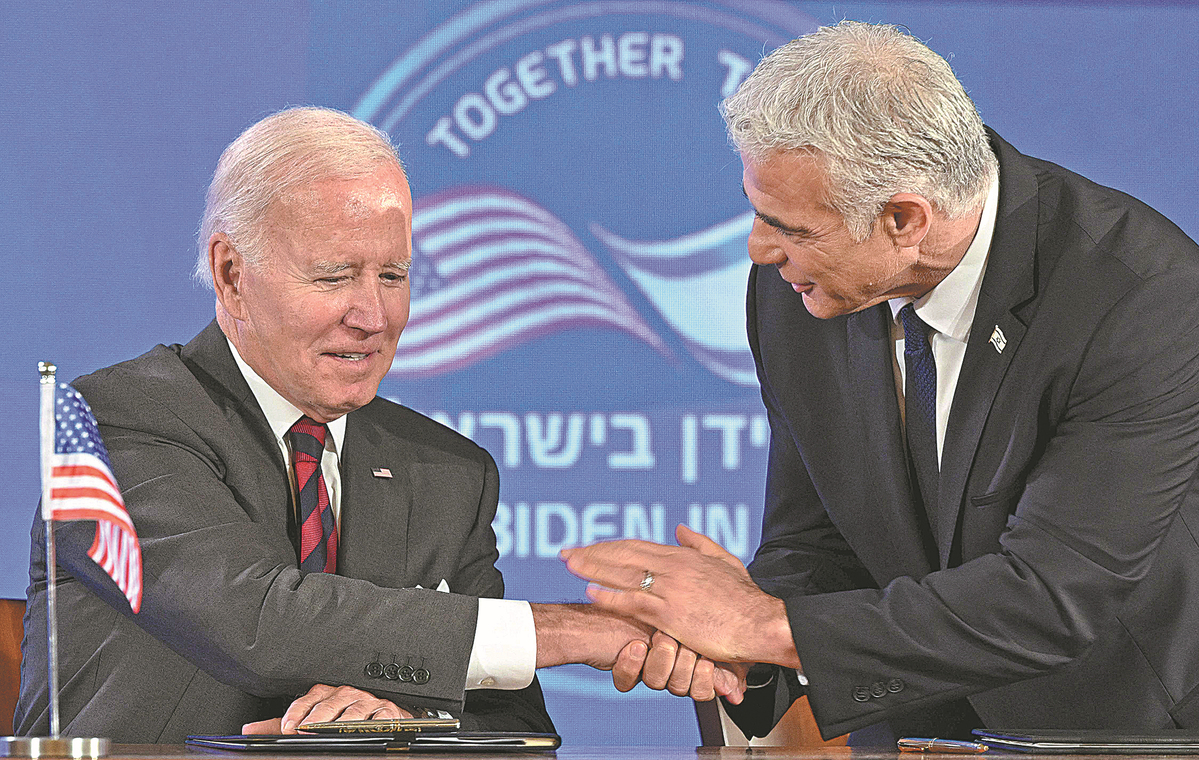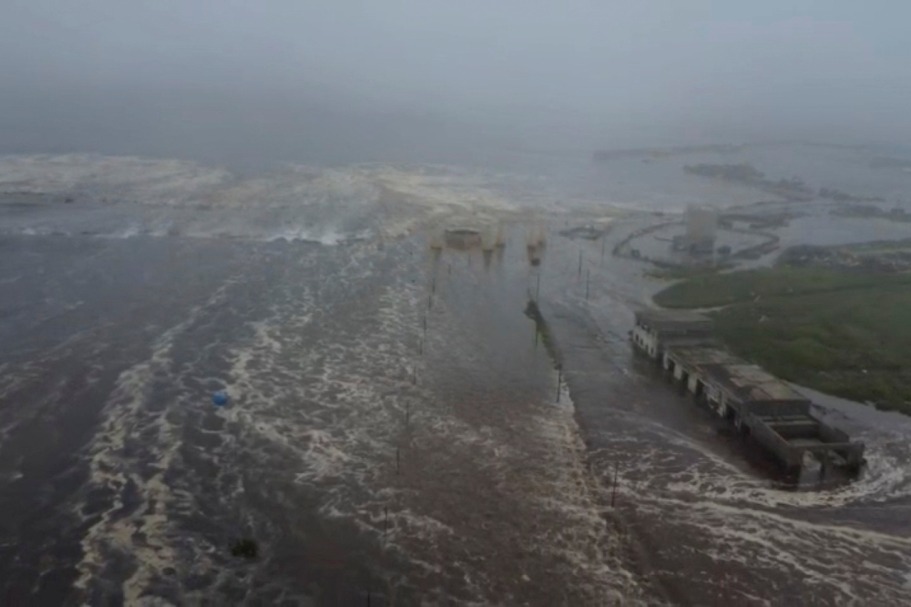Biden, Lapid differences on Iran nuke issue remain


JERUSALEM-Differences on the Iranian nuclear issue between the United States and Israel remain amid US President Joe Biden's visit, analysts said.
On Thursday, Biden and Israeli caretaker Prime Minister Yair Lapid signed the Jerusalem Declaration, a joint document on building a strategic partnership, under which the two close allies affirm their commitment to preventing the nuclear armament of Iran.
But Israeli analysts said such a declaration usually lacks substance and does not reflect any important development in bilateral relations.
Moreover, they predicted that Biden's whirlwind four-day tour to the Middle East, which will end with a stay in Saudi Arabia this weekend, would not live up to the expectation of him expediting the normalization of ties between Israel and Saudi Arabia.
"The real issue is what the US is going to do about Iran, which is what Israel is very much concerned about, and we know that there are differences of opinion between Israel and the US on this issue," said Efraim Inbar, president of Israeli think tank Jerusalem Institute for Strategy and Security.
During the meeting between Lapid and Biden on Thursday, the two sides declared they would not allow Iran to become a nuclear power. They parted ways, though, on how to get there.
Biden, in a joint news conference after a one-on-one meeting with the Israeli leader, said he still wants to give diplomacy a chance. Moments earlier, Lapid insisted that words alone will not thwart Teheran's nuclear ambitions.
Harsh response warned
Iranian President Ebrahim Raisi lashed out at the US and its "regional allies" for stoking instability in the region, the state-run IRNA news agency reported.
"Any mistake by the Americans and their allies in the region and the world will be met with a harsh and regrettable response,"Raisi said.
Emmanuel Navon, an international relations expert at Tel Aviv University, said as the stalemate in the Iranian nuclear deal talks continues, the US wants to send a message to their allies that they are not the ones who closed the door on the possibility of reviving the pact, but it is the Iranians.
Biden met Palestinian President Mahmoud Abbas in the West Bank on Friday, the US president restated support for "two states for two peoples", but said the "ground not ripe" to restart Israeli-Palestinian talks.
Thousands of Palestinians staged demonstrations on Thursday in the West Bank and Gaza Strip against his visit to Israel and the Palestinian territories, slamming his biased stance on the Israeli-Palestinian issue.
Biden was also scheduled to travel to Saudi Arabia on Friday. Analysts expected symbolic gestures toward the normalization of ties between Israel and Saudi Arabia.
Saudi Arabia announced on Friday a decision to open its airspace for all air carriers.
Lowering expectations before Biden's visit, a US official told Reuters on Friday that the US is not expecting Saudi Arabia to immediately boost oil production and is eyeing the outcome of the next OPEC+ meeting next month.
Agencies - Xinhua

































